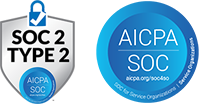What Is Career Development?
Career Development is the structured, continuous process by which employees and organizations plan and support skill growth, progression pathways, and professional goals. It combines feedback, training, assignments, and mentoring to guide individuals from current roles toward future opportunities.
By leveraging data on skills gaps, performance ratings, and career aspirations, Career Development ensures each employee follows a tailored path—boosting satisfaction and aligning talent pipelines with business strategy.
Why Career Development Matters
Investing in Career Development reduces turnover by demonstrating clear growth opportunities. When employees see a roadmap for advancement, engagement and loyalty rise—saving recruitment costs and preserving institutional knowledge. Strong development programs also close critical skill gaps.
By tracking progress and outcomes, organizations validate learning investments and forecast talent needs, ensuring readiness for evolving roles.
Where Career Development Is Used
- Human Resources & L&D: Designs learning paths, certifications, and succession plans.
- Technology: Maps skills like cloud computing and data science to career ladders.
- Healthcare: Tracks clinical competencies and credentials for nurses and specialists.
- Financial Services: Aligns regulatory training with promotion criteria.
- Retail & Hospitality: Rotational programs build management pipelines from frontline roles.
Career Development Key Benefits
- Enhanced Retention: Clear advancement paths keep top performers engaged.
- Skill Alignment: Data-driven gap analysis prioritizes training investments.
- Leadership Pipeline: Succession planning prepares internal candidates for critical roles.
- Performance Improvement: Regular feedback and mentorship drive productivity gains.
- Employer Branding: Robust development programs attract external talent.
Best Practices & Examples
- Individual Development Plans (IDPs): Co-create SMART goals—Specific, Measurable, Achievable, Relevant, Time-bound—with each employee.
- Mentorship Networks: Pair emerging talent with seasoned leaders for knowledge transfer and career coaching.
- Rotational Assignments: Rotate high-potential staff through cross-functional roles to broaden experience.
- Learning Analytics: Use completion rates and skill assessments to refine program content.
- Internal Talent Marketplaces: Broadcast open roles and gigs, enabling employees to apply for stretch assignments.
Conclusion
Effective Career Development transforms individual aspirations into organizational strength. By combining goal setting, skills data, and structured support—IDPs, mentoring, and analytics—companies build resilient talent pipelines. This strategic alignment drives engagement, innovation, and future-ready workforces.
Career Development FAQs
Q: What are the 5 steps of career development?
Five core steps are: (1) Self-assessment—identify strengths and interests; (2) Goal setting—define short- and long-term objectives; (3) Skill gap analysis—compare current capabilities to desired roles; (4) Development plan—select learning and experiences; (5) Review—monitor progress and adjust.
Q: What are the 4 P’s of career development?
The 4 P’s framework includes: (1) Purpose—clarify motivations and values; (2) Preparation—acquire skills and credentials; (3) Positioning—build network and personal brand; (4) Progression—apply for roles and track milestones.
Q: What are the 4 stages of career development?
Typically: (1) Exploration—research roles and self-discovery; (2) Establishment—secure entry-level positions; (3) Mid-Career—expand skills and take leadership roles; (4) Late Career—mentor others and optimize legacy.
Q: What is career skill development?
Career skill development is the targeted acquisition and refinement of competencies—such as technical, leadership, or interpersonal skills—through courses, on-the-job projects, and coaching to prepare for current or future roles.



